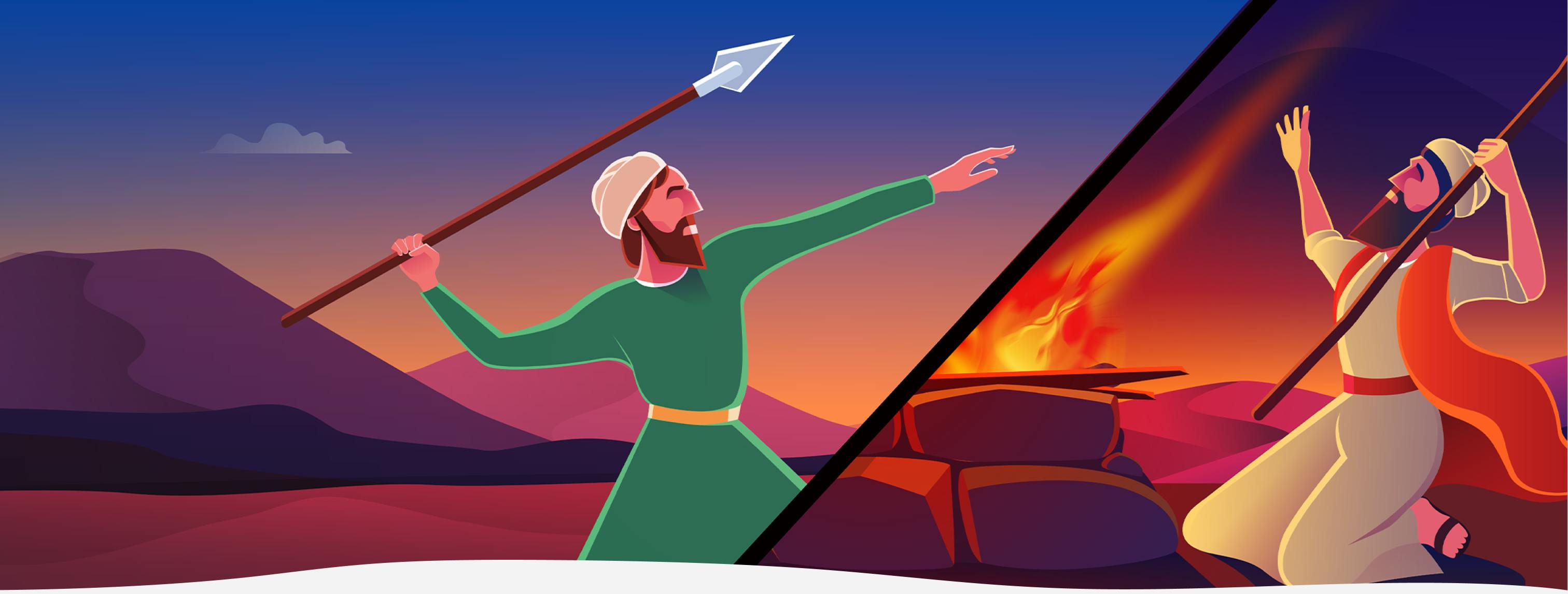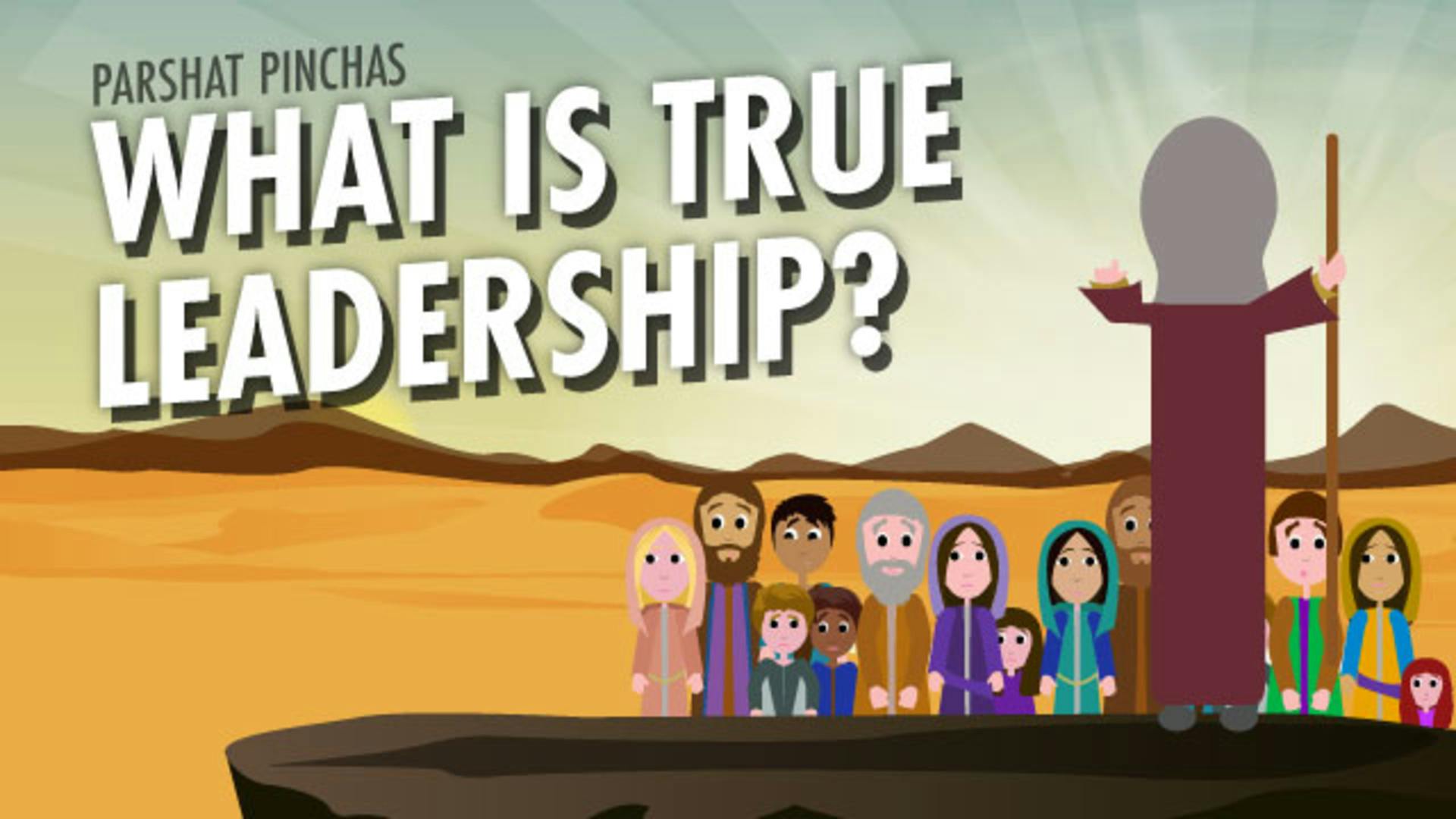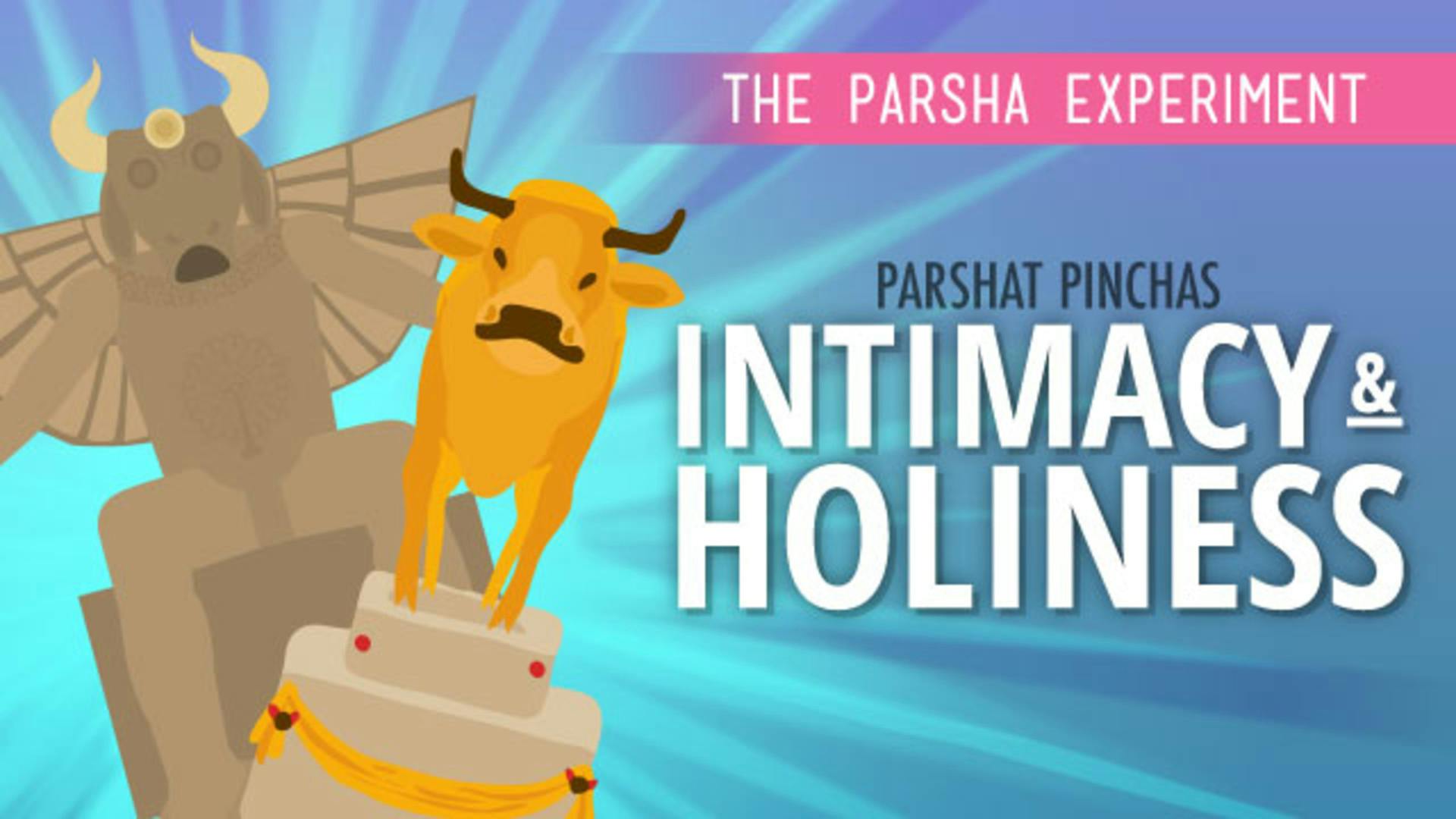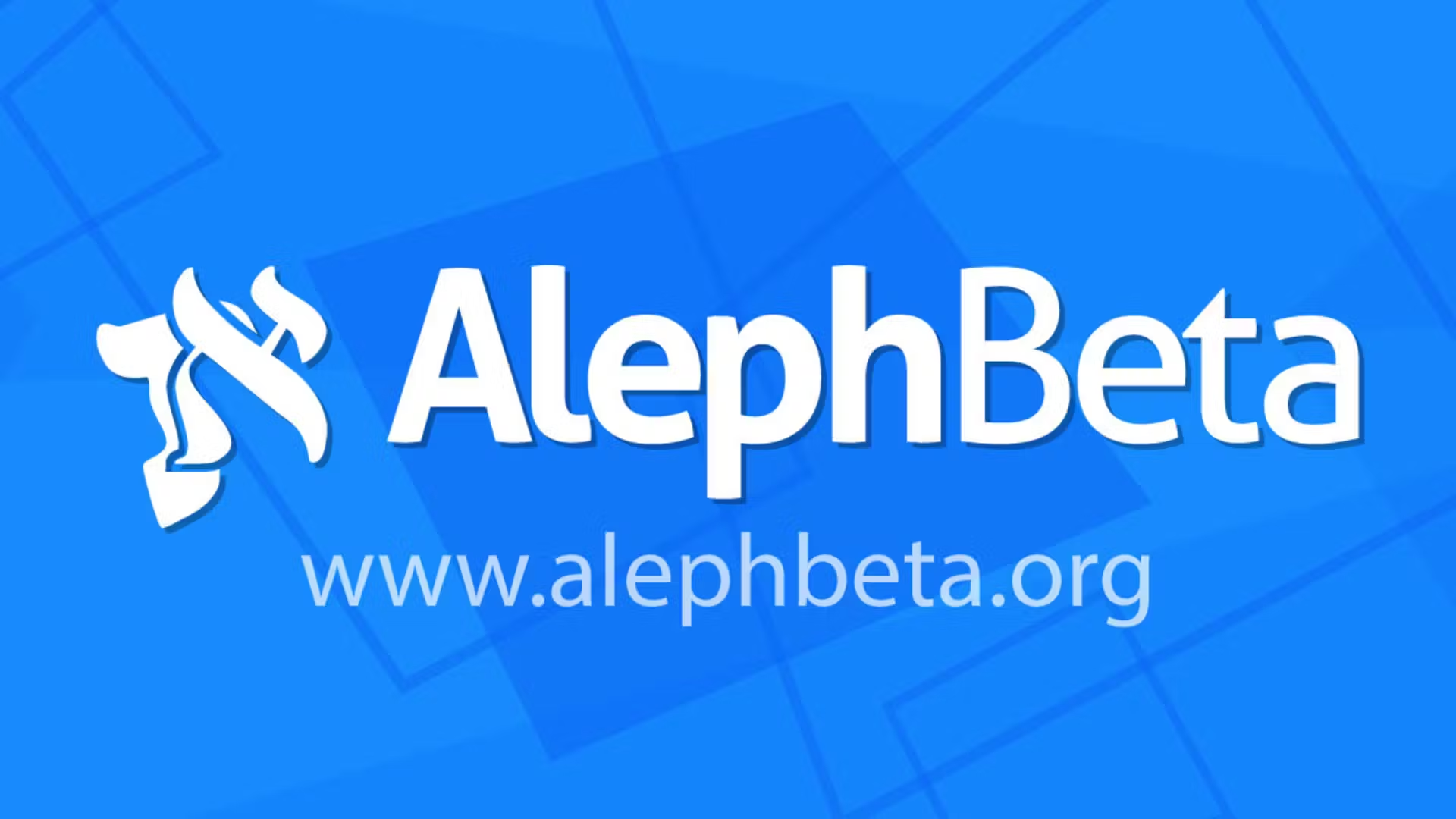
Dvar Torah - Parshat Pinchas
Was Pinchas Really Elijah?
BY Ari Levisohn | March 17, 2024 | 5 Minute Read
Dvar Torah Parshat Pinchas
Pinchas and Elijah
Our sages tell us something shocking about Pinchas, the man after whom this week’s parsha is named. They tell us that Pinchas was actually Elijah the prophet (Yalkut Shimoni 5771:21). Now, you might be wondering why the sages would suggest that these two characters, who lived over 400 years apart, could possibly be the same person.
But, leaving aside the question of whether they meant this literally, it seems like the sages must be trying to teach us something. At the very least, they want us to think of these two people, and the stories of their lives, as if they were connected on some deep level.
So what was this deeper connection that the sages were hinting to? In order to figure that out, let’s first remind ourselves exactly who these two characters were.
Who Was Pinchas?
The end of the previous parsha, Parshat Balak, tells of a horrible incident that began when Israelite men started to engage in harlotry with Midianite women. If that wasn’t problematic enough, these women then lured the Israelite men into idolatry, provoking extreme anger from God. God decreed that those who took the lead in this sin should be killed, and a plague apparently broke out amongst the nation.
In the midst of all of this, an Israelite chief named Zimri, brazenly brings Cozbi, his Midianite mistress, before Moses and the entire congregation. Everything is falling apart. The nation is weeping.
And at that moment, Pinchas—a Levite who is previously mentioned only for being Aaron’s grandson—rises out of the crowd and stabs Zimri and Cozbi, killing both of them, which placates God’s anger and brings an end to the plague.
In the opening verses of week’s parsha, God praises Pinchas for carrying out God’s vengeance and blesses him with a “covenant of peace.”
פִּינְחָס בֶּן־אֶלְעָזָר בֶּן־אַהֲרֹן הַכֹּהֵן הֵשִׁיב אֶת־חֲמָתִי מֵעַל בְּנֵי־יִשְׂרָאֵל בְּקַנְאוֹ אֶת־קִנְאָתִי בְּתוֹכָם וְלֹא־כִלִּיתִי אֶת־בְּנֵי־יִשְׂרָאֵל בְּקִנְאָתִי לָכֵן אֱמֹר הִנְנִי נֹתֵן לוֹ אֶת־בְּרִיתִי שָׁלוֹם
Pinchas, the son of Elazar, the son of Aaron the priest, returned My anger from upon the Israelites, when he took up My jealousy in their midst, and I did not finish off the Israelites with My jealousy. Therefore, behold, I am giving him My covenant of peace.
(Numbers 25:11–12)
Leaving aside the question of why God would give a covenant of peace to a man who just acted with such violence, it is clear that God was quite happy with Pinchas’s action. God follows this by assuring Pinchas that the priesthood will continue through him and his progeny forever.
The story of Pinchas is the paradigm of a zealot for God. He stood up for what was right, and God commended him for it.
So what does this tell us about the sages’ link between Pinchas and Elijah? Is this zealotry a defining trait of Elijah, as well? Let’s take a look.
The Story of Elijah
Elijah, also a previously unknown man, also rises to the stage at a moment when idolatry is running rampant in Israel. Elijah’s reaction seems quite bold. He proclaims a drought throughout the land of Israel.
Why and how did Elijah do that? The sages explain that when Elijah initially tried criticizing the nation, Achav, the King of Israel, tried to deflect this rebuke, by pointing out that God promised in Deuteronomy that if the Jews worship idolatry, there won't be rain in the land. Since there was plenty of rain, it must mean that the people were not transgressing, Achav argued. At that point Elijah felt the need to stand up for the honor of God and proclaimed “As יהוה lives, the God of Israel whom I serve, there will be no dew or rain except at my bidding” (I Kings 17:1). Apparently Elijah had superpowers, so he uses those powers to halt the rain, doing what he believes to be in defense of God.
Perhaps this defense of God is what the sages had in mind when they connected Elijah to Pinchas. Both of these characters saw great evil being committed and, without being asked, made the decision to zealously stand up for God. In fact, Elijah even uses the exact same language of “God’s jealousy” to describe his own behavior:
Pinchas
Elijah
פִּינְחָס… הֵשִׁיב אֶת־חֲמָתִי מֵעַל בְּנֵי־יִשְׂרָאֵל בְּקַנְאוֹ אֶת־קִנְאָתִי
קַנֹּא קִנֵּאתִי לַיהֹוָה
Pinchas… returned My anger from the Israelites, when he took up My jealousy.
I have taken up the jealousy of God.
(Numbers 25:11)
(I Kings 19:10)
But as striking as these similarities are, if we look a little deeper into the stories of Pinchas and Elijah, we’ll notice that there’s also a significant difference between them.
God’s Response to Elijah
This difference between Pinchas and Elijah has to do with God’s response to their zealous actions. Whereas Pinchas seems to meet with nothing but approval, it is questionable whether that's true with Elijah. At first God seems to signal approval by putting an end to the rain, according to Elijah’s word. Eventually, though, God tells Elijah that it is enough. He is going to send rain (I Kings 18:1). Later God actually criticizes Elijah for his zealotry (I Kings 19).
Why Did God Treat Pinchas and Elijah Differently?
The sages’ comparison between these two similar characters only highlights how strange it is that God has such different reactions to each of them. Why was God so supportive of Pinchas’s zealotry, yet critical of Elijah’s?
Check out this video in which Rabbi David Fohrman looks for an answer, and finds one in an unexpected place: the story of the Golden Calf. What does the story of Golden Calf have to do with Elijah, and how does it explain his critical mistake?
More Parshat Pinchas Videos
.jpg?ixlib=gatsbyFP&auto=compress%2Cformat&fit=max&rect=0%2C0%2C1920%2C1080&w=1920&h=1080)
How to Improve Our Prayer: Lessons From the Five Daughters of Zelophehad
Video • 15 min
Do you know the best way to ask for something from God? The daughters of Zelophehad do. Click here to learn the secret of their success.

The Legacy Of Leadership That Moses Passes To Joshua
Video • 13 min
Parshat Pinchas describes some very random stories – like another census of the nation, and the daughters of Zelophehad appealing to Moses for a portion of land. Then, suddenly, the stories culminate with God telling Moses about his pending death. Why does the Torah group all of these stories together, and does it have to do with God also telling Moses to appoint Joshua as the next leader of the nation of Israel?

What The Sin Of Ba'al Pe'or Teaches Us About Relationships
Video • 11 min
We’ve seen the people sin over and over, but it looks like last week, the people finally began to trust in God. But now, suddenly, idolatry? What happened? How did the people fail so quickly? Join us as we explore the perplexing story of Ba’al Peor.
More Parshat Pinchas Guides

Pinchas: What Is True Leadership?
Printable Guide
A printable parsha guide for our Pinchas video, "What Is True Leadership?"

Pinchas: What Does It Mean To Be Zealous For God?
Printable Guide
A printable parsha guide for our Bereishit video, "What Does It Mean To Be Zealous For God?"

JULY 19, 2022 - Pinchas: The Daughters of Zelophehad
Printable Guide
JULY 19, 2022 - Pinchas: The Daughters of Zelophehad - Transcript
Parshat Pinchas Pages
What is Aleph Beta?
Aleph Beta is a unique kind of Torah library. Led by our founder, Rabbi David Fohrman, we are dedicated to high-level, textual Torah learning for adults that is intellectually and spiritually sophisticated, that enlivens your Jewish practice and helps you forge a deeper connection to God. Whether you’ve been learning in yeshiva for years or you’re just beginning your Torah journey, you’re sure to find something meaningful and surprising waiting for you here.
Browse our library of over 1,000 beautifully produced animated videos, podcasts, deep dive courses, and printable guides. Topics include the weekly parsha, Jewish holidays & fast days, laws & mitzvot, prayers, relationships, big philosophical ideas and more. Have something to say at the Shabbos table that will amaze your family and guests and bring deep meaning into their lives.


